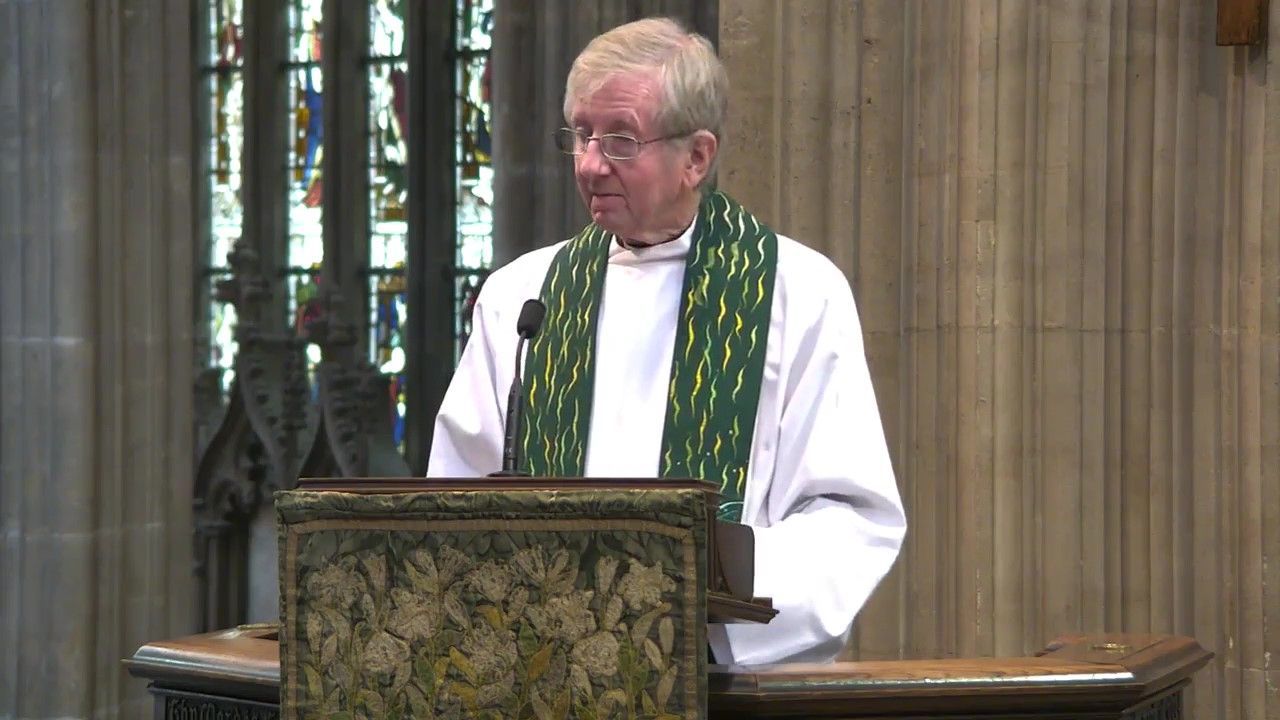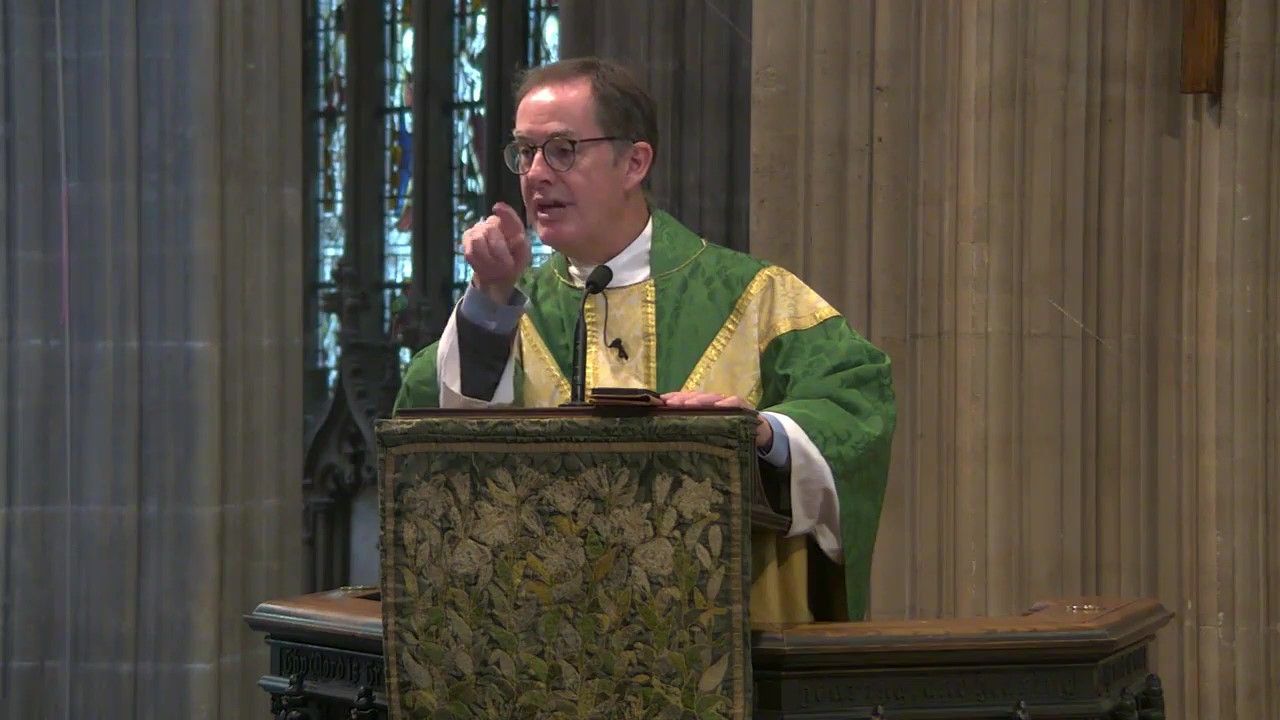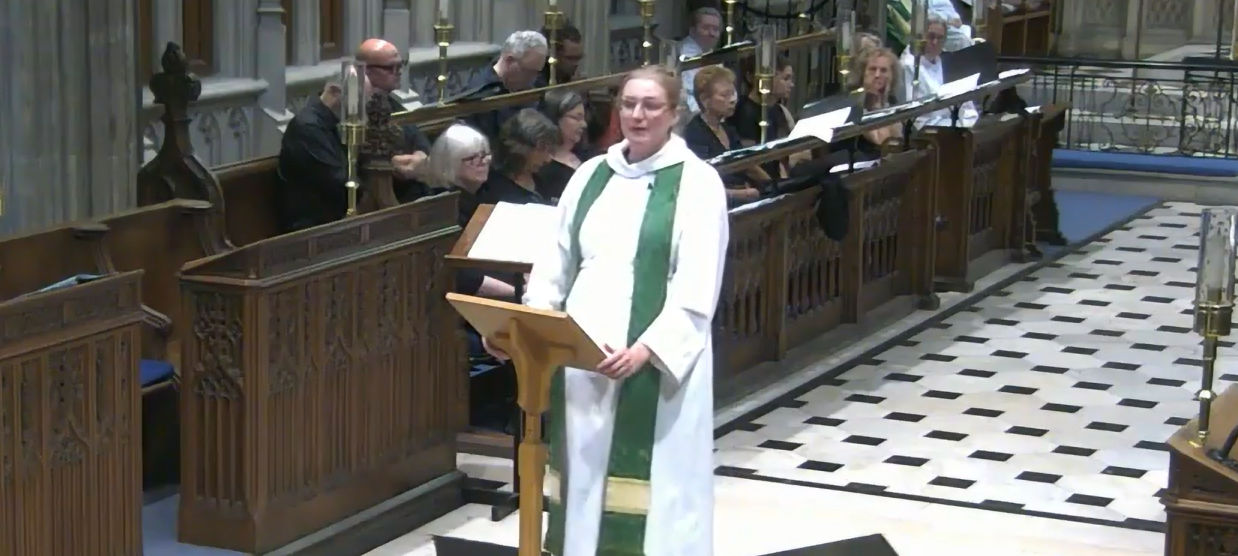And Jesus answered the devil
This Sunday's gospel reading will be well known to many of us. It's from Luke's gospel and the narrative starts just after Jesus has been baptised and we have heard the voice of God saying "You are my son, my beloved: with you I am well pleased". For the pedants amongst us, there are a few verses between those words of God and the start of our reading which provides a genealogy showing how, as the text puts it, Jesus was the son (as was thought) of Joseph and son of God.
Then we read: "Jesus, full of the Holy Spirit, returned from the Jordan and was led by the Spirit in the wilderness, where for forty days he was tempted by the devil". You may recall that the devil visited Jesus three times, each time with a different tempting offer: to turn stones into bread; to be given authority over the kingdoms of the world; to test just how beloved of God he was by throwing himself off the pinnacle of the temple.
And Jesus deflects each of these suggestions: we cannot live by bread alone; worship the Lord and serve only him; do not put the Lord to the test. He declines the invitation. He resists temptation.
But he doesn't deny that the options exist. He doesn't suggest that they exist only the imagination of the devil. He doesn't imply that the devil has gone beyond his dominion. Jesus acknowledges the reality and power of evil; he accepts that there are routes open to him to overcome those realities (for himself in the present at least, and possibly for the whole of humanity for all time); and yet he speaks words of truth, integrity and authority which are heard and known and recognised by the devil who then "departed from Jesus until an opportune time".
At moments like this, an 'opportune time' seems to be upon us. As we watch Russia slowly but surely overwhelm another independent, sovereign nation, described by one person on the radio earlier today as "creating a desert and calling it peace", we might wish that Jesus had acted to save himself and the rest of us: but if he had the world would not be as it is now. If he had, there is a very real chance that we would be like those who have only Russian news to watch and only Russian politicians to listen to.
Much as we may wish it were not so, our faith does not provide us with a shield against the slings and arrows of outrageous fortune; or, in more contemporary imagery, no matter how much we "go compare" or consult the meerkat, our faith provides no insurance policy against the realities of malevolent power or the dominion of those who give voice to the devil.
Last Wednesday, on the first day of Lent, we were told that the fasting the Lord desires is to loose the bonds of injustice, to undo the thongs of the yoke, to let the oppressed go free; elsewhere in scripture we read that we are to beat our spears into pruning hooks and how blessed are the peacemakers; and Sunday's gospel reminds us of the awful truth of the realities of evil and to acknowledge they exist without colluding with them or yielding to them.
Lord, give us grace
neither to act cruelly nor to stand indifferently by
but to defend the weak from the tyranny of the strong.
Dan Tyndall
4 March 2022






